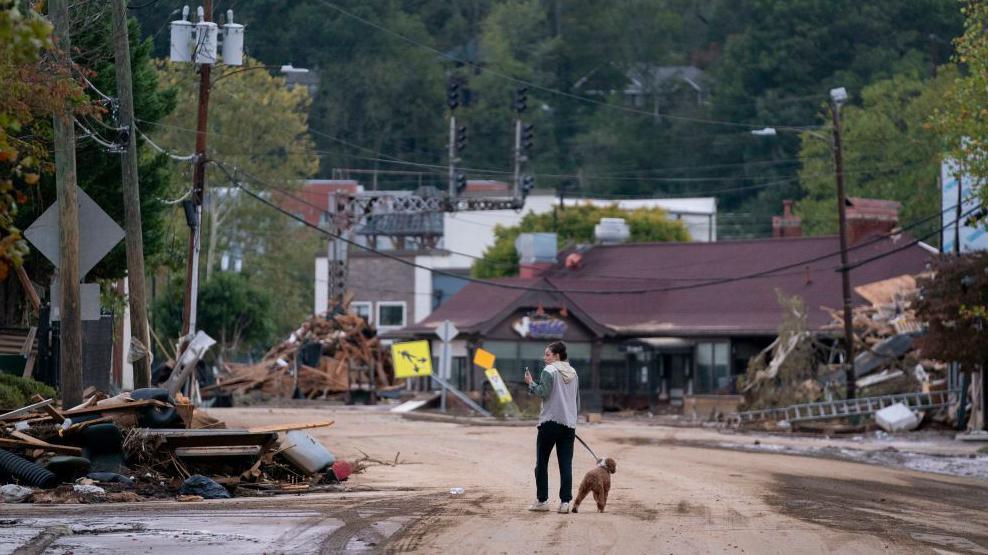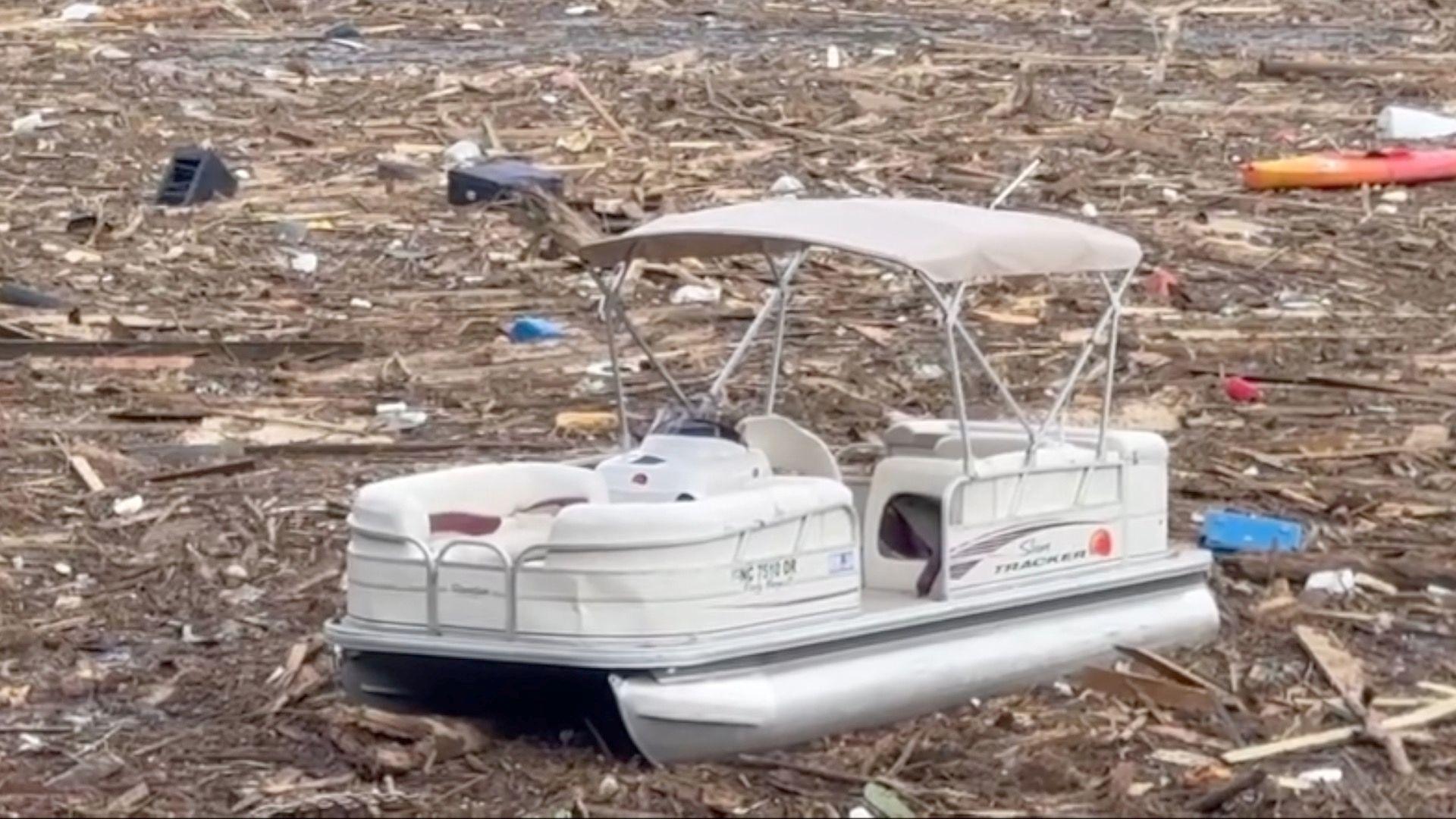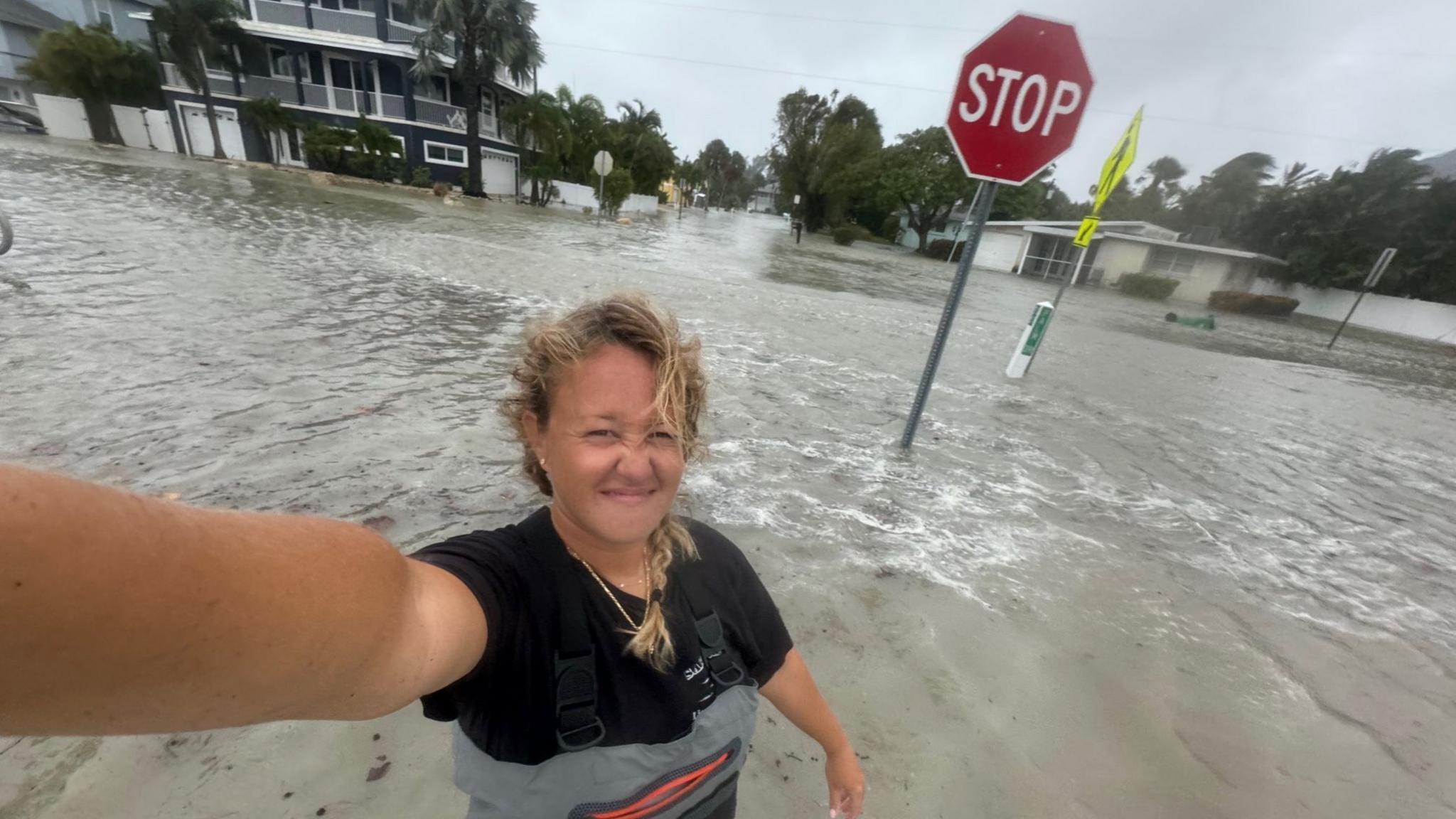Scenes of devastation in North Carolina as storm claims 116 lives
Watch: Hurricane Helene leaves lake filled with debris
- Published
Massive storm Helene has left a trail of devastation across six states in the south-east US, destroying communities and claiming more than 116 lives.
The mountainous region of western North Carolina has seen homes and bridges washed away, villages flattened and the tourist city of Asheville cut off.
Rescuers are focusing their efforts on reaching those communities on Monday but recovery is proving difficult with so many roads impassable.
The death toll is expected to rise as dozens of search teams continue recovery efforts and relatives search for missing loved ones.
Many communities were completely cut off, North Carolina Governor Roy Cooper told CNN on Monday, attributing the difficulty to the region's rugged terrain.
The rescues are further complicated by the isolated nature of the mountain cities in North Carolina, where many roads remain closed from damage and flooding.
Governor Cooper has warned that Helene has brought damage of "historic proportions" and urged people to stay off the roads.
Mobile phone and and internet service is still down for many residents.
Weaverville Mayor Patrick Fitzsimmons represents a town in the hard-hit Bumcombe County, where 35 people are reported to have died so far.
He told BBC News that all of the town's residents survived the storm, but much of its infrastructure didn’t. There is no electricity, and with power cables and utility poles down, it could take at least a week to restore.
Weaverville’s water plant was flooded and citizens have been without drinking water for four days.
The mayor says he is “frustrated it’s taken so long” for federal aid to arrive. As of today, the Federal Emergency Management Agency (FEMA) is distributing drinking water and military-style ready meals (MREs). Only one grocery store is currently operational.
Buncombe appears to be the epicentre of the disaster in North Carolina, with the highest death toll of any county. Many fear that number could rise.
“The county has set up a website where people can ask about missing persons,” Fitzsimmons says. It has received 11,000 requests so far.
Around 1,000 people are still unaccounted for in Buncombe County alone, officials said on Sunday night.

The popular tourist destination of Biltmore Village in Asheville, North Carolina, has been wrecked by the storm
Helene began as a hurricane - the most powerful on record to hit Florida's Big Bend, before moving toward Georgia, the Carolinas and Tennessee.
The majority of deaths have been confirmed in North and South Carolina where Helene travelled through as a tropical storm.
The state of North Carolina has recorded at least 46 deaths, while the storm has claimed at least 27 lives in neighbouring South Carolina, according to the BBC's US partner CBS News.
The North Carolina National Guard has rescued more than 119 people, including one infant, according to Major General Todd Hunt. The largest rescue involved 41 people north of Asheville, he said.
As of Monday morning, 500,000 people remained without power in both North Carolina and Georgia as well as 750,000 in South Carolina, according to poweroutage.us.
The American Red Cross has opened more than 140 shelters for those in south-eastern states who evacuated their homes. More than 2,000 people are currently using the shelters, the organisation said on Sunday.
Recovery from the storm is estimated to cost between $95bn and $110bn (£71bn-£82bn) nationwide.
The remnants of Hurricane Helene are expected to move into the mid-Atlantic on Monday.
But more storms could be on the horizon, officials have warned, as the official end of hurricane season is not until 30 November.
Why was Hurricane Helene so damaging?
Get in touch
Have you been able to leave the region? Are you still in any of the areas affected? If it is safe to do so, get in touch using the form below.
Related topics
- Published30 September 2024

- Published27 September 2024
